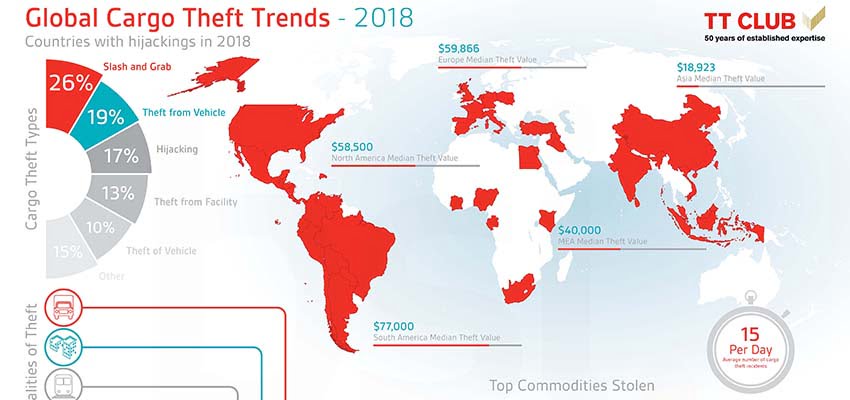CRIMINAL organisations are increasingly looking to recruit employees of target companies in order to overcome sophisticated security, Thomas Miller (TT Club) director Mike Yarwood says.
Mr Yarwood was commenting following the release of the Global Cargo Theft Intelligence Report for 2018, a document prepared by insurer TT Club and supply chain intelligence specialist BSI.
It is their second edition of the report on global cargo theft and the first to cover a full year.
“We would wish to emphasise the insider threat,” Mr Yarwood said.
“As security measures become more sophisticated and widespread in practice, criminal organisations are increasingly recruiting employees of targeted companies to gain data, cargo information, delivery routes and destinations and access to IT systems,” he said.
“Due diligence in recruiting and managing staff is paramount. In general full or part-time salaried staff are less of a security risk than sub-contractors.”
https://www.ttclub.com/loss-prevention/publications/tt-club-bsi-cargo-theft-report-2018/
The report revealed theft from road vehicles was the highest proportion (84%) of global cargo theft.
Other findings included:
- Slash and grab was the largest type of cargo theft at 26% globally but with significant regional variations;
- The combination of food, beverage, alcohol and tobacco made up the most common commodity group at 34%;
- South America topped the regional analysis of median value for each theft at $77,000.
TT Club and BSI produced their first regular Semi-Annual Global Cargo Theft Intelligence and Advisory Report late last year but this second edition is the first to cover a complete twelve-month period.
Mr Yarwood said their report brought together threat and intelligence data from BSI’s supply chain security country risk intelligence tool, SCREEN and TT Club’s insurance risk management and loss prevention insights.
“It demonstrates the shared goal we possess of educating supply chain professionals in the threat of cargo theft across the globe,” he said.
“We aim to engage in a proactive approach in preventing cargo crime and also minimising the financial loss resulting from cargo crime.”

